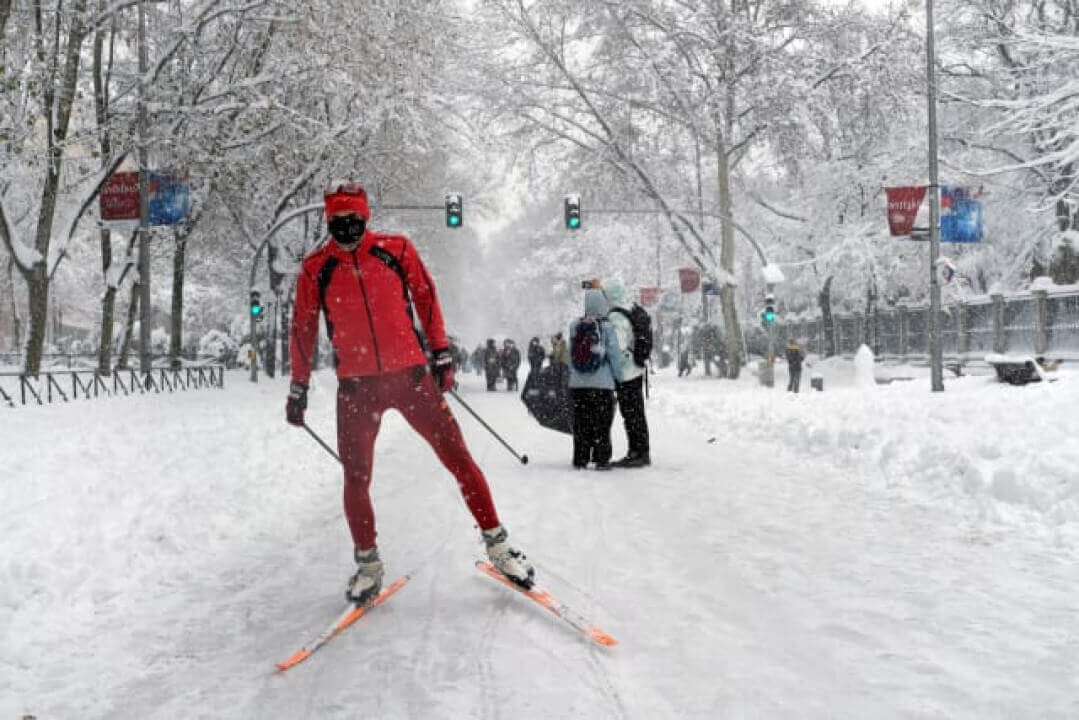Spain is in chaos. Philomena’s snowstorm covered the earth.
The Spanish capital Madrid and most of the neighboring region of Castilla-La Mancha are on high alert on Friday due to, as meteorologists announce, the heaviest snowfall in decades brought by storm Philomena.
The state meteorological agency said this was the biggest snowfall in Spain since 1971, with 25 to 50 centimeters falling in Madrid, the most since 1963.
Such events are rare in the region and could lead to disruptions in daily life and mobility at a time when people are returning home after the Christmas and New Year holidays. This year, however, there is less traffic than usual due to restrictions imposed to combat the coronavirus pandemic.
After heavy snow began to fall, authorities said large parks in Madrid, including the famous Retiro near the Prado Museum, would be closed from Friday afternoon as a precaution.
With 20 centimeters of snow forecast for the next 24 hours and temperatures expected to hover around zero degrees Celsius for most of the day, south of the Madrid region, including the capital, the region is on high alert, for the first time since the alert system created in 2007.
Ruben del Campo, a spokesman for the state meteorological institute, said Madrid was probably facing the heaviest snowfall of the 21st century.
Storm Philomena is moving through Spain after it hit the Canary Islands with strong winds and rain.
In the Greater Canary Islands, a ferry with 59 passengers and 17 crew members anchored on Thursday night after strong winds hit the port of Agaete it was entering.
On Friday, the Coast Guard anchored the ferry in the port, with uninjured passengers and crew still remaining in the vessel, Reuters reports.
Citizens ski down Gran Vío, one of the busiest streets. Other residents of the capital took advantage of the storm to snowball.
Madrid is facing a severe winter, the temperature will drop to -14
Authorities had to mobilize the military to rescue people trapped in the cars. So far, four people have died as a result of Philomena.
Three days ago, the lowest temperature ever on the Iberian Peninsula, -34 degrees, was measured. It was recorded in the region of Aragon.
It is expected to reach -14 degrees in Madrid next week.
Earlier, another earthquake hits Croatia again within just 12 days.














